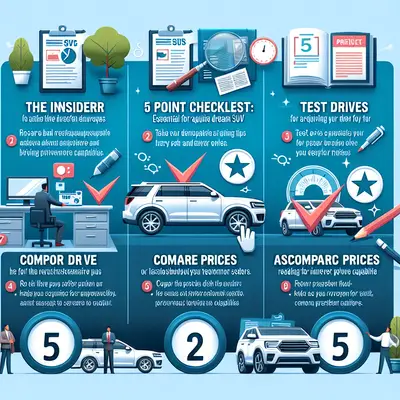Know Your Budget
The first rule of car buying, know your budget. It's easy to get drawn in by the latest features and luxury add-ons, but it's important to remember what you can afford. Factor in not only the purchase price, but also the ongoing costs such as insurance, fuel efficiency, and maintenance.
Understand Your Needs
Decide on what you'll be using the SUV for. Will it be for family outings, off-road adventures, or city commuting? Each use case requires a different set of features. A family SUV should have ample passenger and cargo space, while an off-road SUV needs a robust 4WD system and high ground clearance.
Research the Latest Tech
Modern SUVs are equipped with a plethora of technology features - from safety systems like automatic emergency braking and blind-spot monitoring to convenience features like infotainment systems with smartphone integration. Research these technologies and decide which ones are essential to you.
Check the Safety Ratings
Safety should always be a top priority, especially for family SUVs. Check the crash-test ratings from safety organizations like the National Highway Traffic Safety Administration (NHTSA) and the Insurance Institute for Highway Safety (IIHS).
Test Drive Multiple Models
Finally, make sure to test drive multiple models. This gives you a first-hand experience of how the SUV performs on the road and allows you to check the comfort, handling, and space firsthand.
Conclusion
Purchasing an SUV is a significant investment, and it's important to make an informed decision. By sticking to your budget, understanding your needs, researching the latest tech, checking safety ratings, and test driving multiple models, you can ensure you're choosing the right SUV for you. Keep these insider tips in mind, and you'll be well on your way to mastering the SUV market.



